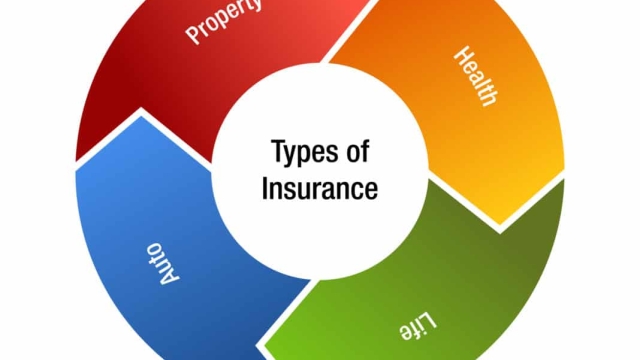Are you tired of feeling lost in the complex world of car insurance? We understand that navigating the maze of terms, options, and providers can be overwhelming. To help you demystify the process, we have gathered some insider tips that will equip you with the knowledge and confidence you need to make informed decisions about your car insurance coverage. Whether you’re a seasoned driver or a small business owner in need of comprehensive coverage, this article will provide you with valuable insights into the world of car insurance. Buckle up and get ready to take control of your coverage!
Understanding Different Types of Car Insurance
Car insurance is a crucial investment for all vehicle owners. Understanding the different types of car insurance is essential to ensure you have the right coverage to protect you and your vehicle in case of an accident or other unfortunate events. Here, we will discuss the main types of car insurance policies available, so you can make informed decisions when selecting the appropriate coverage for your needs.
Liability Insurance: Liability insurance is the most basic and mandatory form of car insurance in most states. This type of coverage helps to protect you financially if you cause an accident that results in injury or property damage to others. It typically includes two components: bodily injury liability and property damage liability. Bodily injury liability covers medical expenses, rehabilitation costs, and legal fees if you injure someone in an accident. Property damage liability covers the cost of repairs or replacement of other people’s property that you damage. It’s important to note that liability insurance does not cover the costs of your own injuries or damage to your vehicle.
Collision Insurance: Collision insurance covers the cost of repairing or replacing your vehicle if it is damaged in an accident, regardless of who is at fault. This type of coverage is especially beneficial if your vehicle is relatively new or of high value. Collision insurance typically comes with a deductible, which is the amount you are required to pay out of pocket before the insurance company covers the remainder. Choosing a higher deductible can help you save on premiums but also means you will have to pay more upfront in the event of a claim.
Comprehensive Insurance: Comprehensive insurance provides coverage for damages to your vehicle that are not a result of a collision with another vehicle. This includes theft, vandalism, fire, natural disasters, and falling objects, among others. Like collision insurance, comprehensive coverage also comes with a deductible. It’s important to carefully consider the deductible amount and your financial situation when selecting this type of coverage.

Understanding the different types of car insurance is essential for selecting the right coverage to protect yourself and your vehicle. By evaluating your needs and budget, you can make informed decisions regarding liability, collision, and comprehensive insurance coverage options. Don’t forget to consult with an insurance professional who can provide further guidance tailored to your specific circumstances.
Choosing the Right Coverage for Your Small Business
When it comes to selecting the appropriate insurance coverage for your small business, there are several factors to consider. It’s crucial to find the right balance between protecting your assets and minimizing costs. Here are some key points to keep in mind:
Assess Your Risks: Begin by evaluating the specific risks that your small business faces. Different industries have varying levels of risk exposure, so it’s essential to identify the particular challenges your business may encounter. For example, if you operate a delivery service, you may need coverage for potential accidents or damage to goods during transit. Understanding these risks will help you determine the most suitable coverage options.
Research Available Policies: Take the time to explore the different insurance policies available for small businesses. Look for policies that align with your specific needs and provide comprehensive coverage. Consider reaching out to insurance providers and discussing your requirements with them. They will be able to guide you towards the most suitable policy based on your industry and business type.
Seek Professional Guidance: If you find the process challenging or overwhelming, don’t hesitate to seek assistance from an insurance professional who specializes in small business insurance. They can provide expert advice tailored to your unique circumstances. Insurance professionals will help you navigate the maze of options and ensure you select the right coverage for your small business.
Remember, finding the right insurance coverage is not only about complying with legal requirements but also about safeguarding your business against potential risks. By assessing your risks, researching available policies, and seeking professional guidance, you can navigate the complexities of car insurance for your small business with confidence.
Tips for Saving Money on Car Insurance
Compare Quotes
When it comes to getting the best deal on car insurance, comparing quotes is essential. Take the time to reach out to multiple insurance providers, either online or by contacting them directly, to obtain quotes for the coverage you need. By comparing these quotes side by side, you can identify the most favorable rates and choose the insurance policy that best suits your budget.
Contractor Insurance MichiganChoose a Higher Deductible
One effective way to save money on car insurance is by opting for a higher deductible. Your deductible is the amount you are required to pay out of pocket before your insurance coverage kicks in. By increasing your deductible, you assume more financial responsibility in the event of an accident or damage to your vehicle. In exchange, most insurance providers offer lower premium payments, ultimately saving you money over time.Explore Discounts
Insurance companies often provide various discounts to help policyholders save on their car insurance premiums. These discounts can be based on factors such as a good driving record, completing defensive driving courses, being a loyal customer, or having certain safety features installed in your vehicle. Be sure to inquire about any potential discounts when shopping for car insurance, as these can significantly reduce your overall costs.
Remember, by comparing quotes, considering a higher deductible, and exploring available discounts, you can navigate the maze of car insurance and find ways to save money without compromising on coverage.


